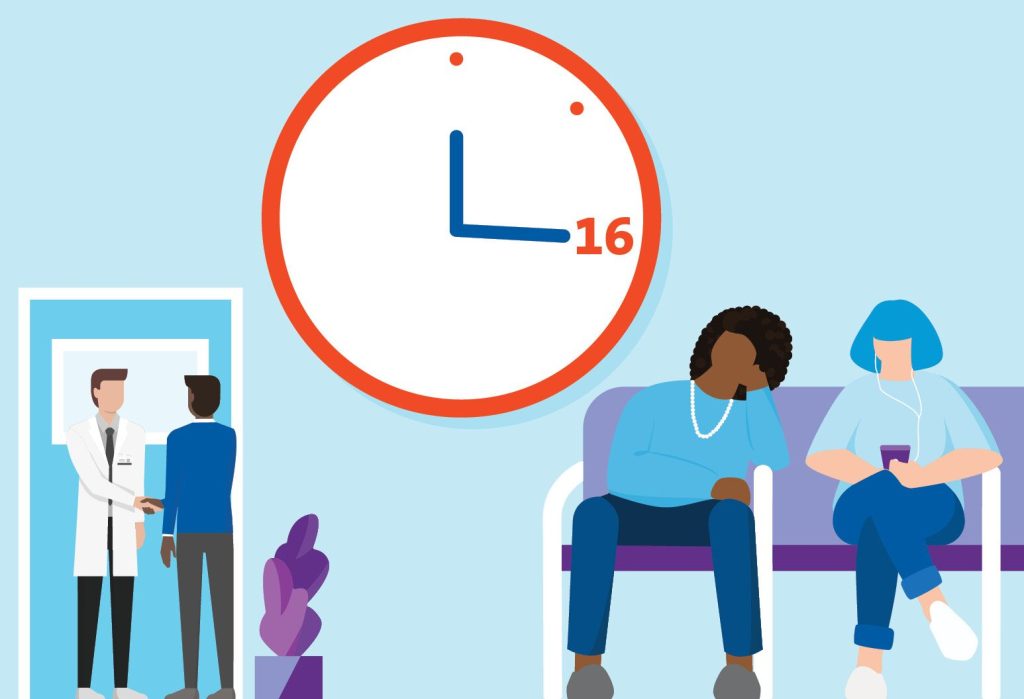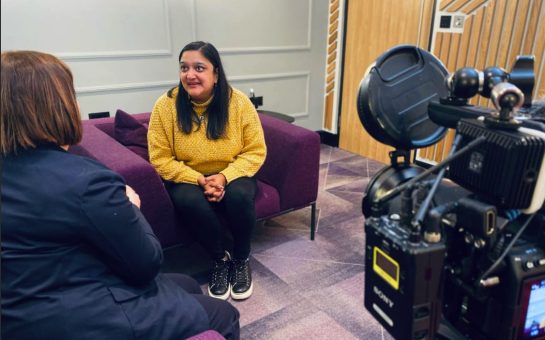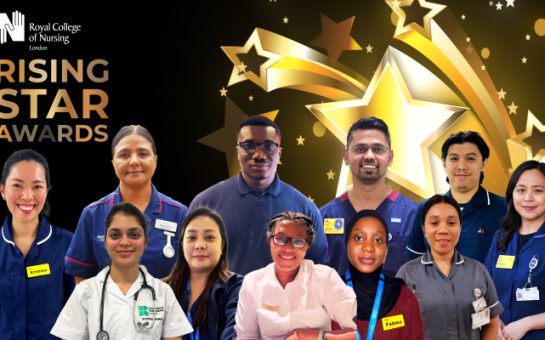There has been an increase in gaslighting in healthcare and web searches relating to this – but why is it an issue?
84% of women in the UK feel as though whenever they visit their GP, they aren’t listened to, and end up being gaslighted into believing their issue isn’t a big one.
Nichelle Charles, 23, is one of many women who have faced this problem.
Irregular periods don’t typically cause a concern, and they happen to most women.
If you go a month or two at most without getting your period, there’s not really a need to be worried.
Around 14% – 25% experience menstrual irregularities, according to the National Institute of Child Health and Human Development.
However, when Nichelle saw that her period had not appeared for four months, she visited her GP to see if she could get any answers.
She told SWL: “It involved a lot of back and forth over the phone to convince someone to see me.
By the time I had booked in to be seen, my period had not shown up for 8 months.”
After a blood test to check for hormone imbalances which came out negative, the result was a high blood sugar level.
Nichelle said: “They ultimately blamed it on my weight, as to why I was having irregular periods, which I felt was not the case.
“I felt stressed, because I did not know what the problem was and why it was that I was missing periods.
“I wanted to rule out anything serious as soon as possible.”
As part of a survey carried out by the Department for Health and Social Care (DHSC) in March 2021, around 100,000 participants got in touch to share their experiences as a woman, experiences of a female family member, friend or partner, and their reflections as a self-identified health or care professional.
Whilst 84% of women feel they are not listened to, a close tie of 85% of women feel comfortable talking to healthcare professionals about general physical health concerns.
However, this falls to 59% when it regards mental health.
77% of women felt comfortable talking about their menstrual wellbeing with a healthcare professional, and whilst this might’ve been the case for Nichelle at the start of her visits, this trust eventually decreased.
She told us: “I tried to get an appointment for months, and when I finally did get one, they weren’t helpful.
“They seemed to want to get me in and out as fast as possible, because my issue seemed like a lot more effort.
“Which, it shouldn’t be, as it is my health and if it’s something serious, I want to catch it right away so that I can deal with or manage it in the best possible way.”
Psychologist and bestselling RadFem author Dr. Jessica Taylor is an advocate for speaking out for the rights of women, especially regarding healthcare.
In one of her many powerful and supportive Twitter statements, she wrote: “Women need support, information, guidance and compassion to attend smear tests that trigger them, scare them, humiliate them and worry them. Maybe listen to women?”
In an interview with The Guardian, she said: “I will always centre women in my work and I will keep making misogynists uncomfortable.
At the release of her book in 2020 titled ‘Why Women Are Blamed For Everything’, Taylor received a lot of online hate, including daily messages from men telling her crude things, such as death threats.
She also said: “Abuse and trolling is scary, and it’s exhausting, but it’s never going to get me to a point where I say, ‘I will stop talking about the abuse of women and girls,’”.
Camille Noe Pagan wrote for The New York Times about her experience getting treated.
She told her physician that she wasn’t enjoying time with her children, and in response got a cheerful “Well, you look like you’re doing great!”.
In response, her physician told Pagan to keep exercising, doing yoga and maybe meditating, and as always, getting more sleep.
Pagan, however, felt like these just weren’t working for her.
She writes: “My physician was just like me. A relatively young, educated mother of small children with plenty on her plate.
“Wouldn’t she know if I were truly in need of treatment?”
It took her months to summon the courage to seek help, and eventually get therapy.
However, there still remains the issue of healthcare professionals dismissing or downplaying their patients’ concerns.
In the survey done by the DHSC, a respondent aged 25 to 39 said: “I wanted to discuss sterilisation and was told I was too young to know that I didn’t want children.
“The doctor then went on to tell me that I would change my mind if I ‘met a nice boy’, despite being engaged to a man at the time. They did not listen to the concerns I raised.”
Another, aged 25 said: “I had to visit my GP surgery three times about a single suspect mole. The first two times, it was dismissed. They eventually referred me to a specialist. It turned out to be cancerous.”
When thinking about what could have been done to help her situation, Nichelle said that more effort should’ve been put in when looking at what issues cause irregular periods.
She said: “Women are often labelled as ‘hysterical’ when they get angry or have any other emotion which is seen as defensive.
Whenever there is an issue, it’s all put down as hormonal imbalances, or that it’s ‘all in our heads’, and when women try to speak up about it, they are ignored.
“It feels as though you have to wait until you are seriously ill until some doctors take your concerns seriously.”
A University of Pennsylvania study found that women waited 16 minutes longer than men to receive pain medication when they visited the emergency room.
New Scientist writes that UK studies show that misinterpretations of female pain as anxiety often contribute to women being around more than 50% likely to be misdiagnosed after a heart attack.
A 2018 study analysing journal papers on sex, gender and pain published in the UK, US and Europe in 2001 revealed that terms like sensitive, malingering, complaining and, indeed, hysterical are applied more frequently to pain reports from women.

Nichelle said: “I think to further improve services for women who need help, there needs to be a better concern for their issues.
“Everything needs to be tested for even if it might be something miniscule, and it shouldn’t be stopped until the answer is found.”
In her article, Pagan writes the steps that you should take if you feel like you may be ignored by a healthcare professional.
- Ask about guidelines: “What’s the basis for your diagnosis? Guidelines tend to be objective and data-driven, so women do better when their doctors follow them.
- Be direct: “I’m concerned, and I feel like you aren’t hearing me.”
- Check your own bias: Recognise that expressing concerns over symptoms doesn’t mean you’re overreacting, self-diagnosing or trying to do your healthcare provider’s job for them.
And these are some warning signs to look out for when attending your next appointment, if you think you aren’t being listened to.
There is still a lot of work to be done to smooth out the disparages in healthcare and the quality of care women receive.
Hopefully, this change will happen soon.
Find more information and insight into the DHSC survey here.




